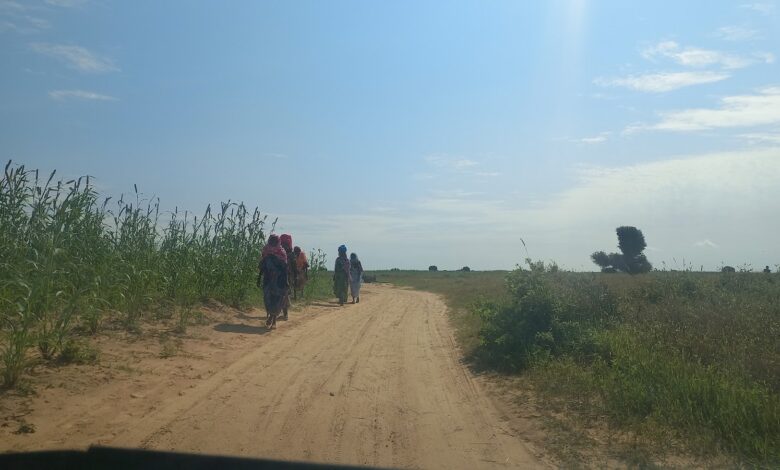ISWAP Restricts Farming Activities In Remote Areas Amid Military Strikes
Last week, the terror group accused locals in these areas of spying for the military. They carried out an attack in Krenoa, a village located 20 kilometres away from Marte.

The Islamic State West Africa Province (ISWAP) has reportedly imposed a sweeping ban on farming, fishing, and herding activities in the remote northeastern region of Marte, in a move that severely impedes local agriculture and threatens the livelihoods of many.
This development came as the group suffered substantial losses from a series of airstrikes coordinated by the Nigerian military. The targeted areas included the general locations of Katikime, Bulungahe, Kutukungunla, Chikun Gudu, Tumbumma, Guma Kura, Guma Gana, and New Marte.
Last week, ISWAP accused the locals in these areas of spying for the military. They carried out an attack in Krenoa, a village located 20 kilometres away from Marte, the headquarters of the Local Government Area (LGA) that bears the same name. In this attack, seven farmers lost their lives.
“They killed seven men in the farmlands of Krenoa last week, accusing them of aiding soldiers in identifying their positions for an airstrike,” reported a local fish merchant who recently returned from the area.
The source, who wishes to remain anonymous due to concerns of being targeted, revealed further that, “there were initially eight men on the farm when they launched the attack. However, the youngest among them managed to hide and later escaped to inform our people in Marte about the incident and the reasons behind the killing of the seven men.”
The airstrikes, part of Operation Hadin Kai, have been particularly devastating, resulting in the loss of multiple ISWAP commanders, numerous foot soldiers, their logistic supplies, and vehicles. The strikes have forced the group to abandon their bases and seek refuge in locations perceived as safer.
The people of communities around the shores of Lake Chad said they are now experiencing the dual challenge of a terrorist presence and the restriction of access to their farmlands. The ban leaves local farmers, fishermen, and herders cut off from their livelihoods, escalating an already dire humanitarian crisis in the region.
“These might affect the cropping season, especially if they continue to bar farmers from going to tills in this crucial stage of the rainy season,” said Bukar Adam, a Maiduguri-based trader from Marte.
The ban by ISWAP on farming in these remote areas illustrates the complex challenges facing the region, where the fight against terrorism intersects with the daily struggle for survival.
Support Our Journalism
There are millions of ordinary people affected by conflict in Africa whose stories are missing in the mainstream media. HumAngle is determined to tell those challenging and under-reported stories, hoping that the people impacted by these conflicts will find the safety and security they deserve.
To ensure that we continue to provide public service coverage, we have a small favour to ask you. We want you to be part of our journalistic endeavour by contributing a token to us.
Your donation will further promote a robust, free, and independent media.
Donate HereStay Closer To The Stories That Matter




